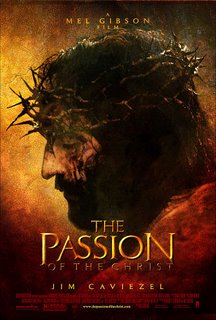ROME, MARCH 6, 2003 (Zenit.org).- Oscar winning actor-director Mel Gibson is in Rome these days, working on a film on the passion of Christ at the Cinecittà studios.The movie focuses on the last hours of Christ’s life and stars Jim Caviezel ("The Thin Red Line," "Angel Eyes," "The Count of Monte Cristo") as Jesus. Gibson granted the following exclusive interview to ZENIT.
News Story:
Q: What made you decide to do this project?
Gibson: It’s been slowly coming on for about 10 or 12 years now. I’m a pretty old guy, but if you go back 12 years I was 35. That’s when I started to investigate the roots of my faith. I had always believed in God, that he existed, and I was brought up to believe in a certain way.But in my middle years, I kind of drifted, and other things took center stage. At that point, I realized I needed something more if I was going to survive. A closer investigation of the Gospels, of the story, of the whole piece, was demanded of me.That’s when the idea started to percolate inside my head. I began to see it realistically, re-creating it in my own mind so that it would make sense for me, so I could relate to it. That’s what I want to put on the screen.
Q: So many movies about the life of Christ have already been made. Why make another one?Gibson: I don’t think other films have tapped into the real force of this story. I mean, have you seen any of the others? They are either inaccurate in their history, or they suffer from bad music or bad hair. This film will show the passion of Jesus Christ just the way it happened. It’s like traveling back in time and watching the events unfold exactly as they occurred.
Q: How can you be sure that your version is so accurate?
Gibson: We’ve done the research. I’m telling the story as the Bible tells it. I think the story, as it really happened, speaks for itself. The Gospel is a complete script, and that’s what we’re filming.
Q: This seems like a switch from the usual Mel Gibson productions. Your specialty is action, adventure and romance. What made you decide to do a religious film?
Gibson: I’m doing what I’ve always done: telling stories I think are important in the language I speak best: film. I think most great stories are hero stories. People want to reach out and grab at something higher, and vicariously live through heroism, and lift their spirit that way.There is no greater hero story than this one — about the greatest love one can have, which is to lay down one’s life for someone. The Passion is the biggest adventure story of all time. I think it’s the biggest love-story of all time; God becoming man and men killing God — if that’s not action, nothing is.
Q: Who will want to see a film like this?
Gibson: I think everyone will. The story has inspired art, culture, behavior, governments, kingdoms, countries — it has influenced the world in more ways than you can imagine. It’s a pivotal event in history that has made us what we are today. Believers and nonbelievers alike, we have all been affected by it.So many people are searching for meaning in life, asking themselves a lot of questions. They’ll come looking for answers. Some will find them, some won’t.
Q: So this film isn’t only for Christians?
Gibson: "Gandhi" was a blockbuster hit, but it wasn’t just for Hindus. This film is for everyone. For believers and nonbelievers, Jesus Christ is undoubtedly one of the most important historical figures of all time. Name one person who has had a greater impact on the course of history.
Q: But if this film is focused on bringing the Gospels to life, won’t it be offensive to non-Christians? For example, the role of the Jewish leaders in Jesus’ death. If you depict that, won’t it be offensive?
Gibson: This isn’t a story about Jews vs. Christians. Jesus himself was a Jew, his mother was a Jew, and so were his Twelve Apostles. It’s true that, as the Bible says, "He came unto his own and his own received him not"; I can’t hide that.But that doesn’t mean that the sins of the past were any worse than the sins of the present. Christ paid the price for all our sins.The struggle between good and evil, and the overwhelming power of love go beyond race and culture. This film is about faith, hope, love and forgiveness. These are things that the world could use more of, particularly in these turbulent times. This film is meant to inspire, not to offend.
Q: Even so, some people are going to think that you just want to "push your beliefs on others." Is that true?
Gibson: I didn’t invent this story. I do happen to believe it. It’s something that just gets inside of you and has to come out. I’m just trying to tell it well, better than it’s ever been told before. When you’re dealing with non-fiction, a director’s responsibility is to make it as accurate as possible. Open-minded people will appreciate it for what it is.
Q: What about the violence? Won’t people find some of the more graphic scenes inappropriate?Gibson: Some people might, but, hey, that’s the way it was. There is no gratuitous violence in this film. I don’t think anyone under 12 should go see it — unless they’re a very mature 12-year-old. It’s pretty heavy.I think we have gotten too used to seeing pretty crucifixes on the wall and we forget what really happened. I mean, we know that Jesus was scourged, that he carried his cross, that he had nails put through his hands and feet, but we rarely think about what this means.Growing up I didn’t realize what was involved in this. I didn’t realize how hard it was. The full horror of what Jesus suffered for our redemption didn’t really strike me. Understanding what he went through, even on a human level, makes me feel not only compassion, but also a debt: I want to repay him for the enormity of his sacrifice.
Q: What about the language barrier? You’re filming in two dead languages — Latin and Aramaic — and you’re not planning to use subtitles. Won’t that be a turnoff?
Gibson: Caravaggio’s paintings don’t have subtitles, but people get the message. The Nutcracker Ballet doesn’t have subtitles, but people get the message. I think that the image will overcome the language barrier. That’s my hope.I’m just trying to be as real as possible. There is something kind of startling about watching it in the original languages. The reality comes out and hits you. Full-contact. I know we are only re-creating, but we are doing the best we can to simulate an experience of really being there.And I think it’s almost counterproductive to say some of these things in a modern language. It makes you want to stand up and shout out the next line, like when you hear "To be or not to be" and you instinctively say to yourself, "That is the question."But if you hear the words spoken as they were spoken at the time, it can kind of stun you. I’ve seen that happen when we’re working. It gets a clarity to it through the acting, through the nuances of the characters, the movement of the camera — it’s the movement, it’s the timing, it’s everything. All of a sudden it’s very, very clear to me. That’s when I cut and move on.
Q: When you finish this project, will it be a letdown to go back to less sublime subject matter?Gibson: No, it will be a relief to do something that’s a little lighter. There is a tremendous burden of responsibility in this one, not to sell anything short. I just hope I can do justice to the story. You can’t please everybody, but then again, that’s not my goal.
 I heard about Mel Gibson creating a movie that focused on Christ's Passion only, in all of its graphic detail, in 2003. My first thought was "Wow, Mel's a Christian? And what made him want to do a film about the last hours of Jesus' life?" But then, as I found out more about it, I couldn't believe that someone wanted to represent His suffering for us in the goriest extreme as is often avoided in most movies. Often people are shocked at the discovery of what just the Roman scourging alone would do to a person, aside from a crucifixion on top of it. I am writing this blog in retrospect, attempting to do what I would have done as soon as I found out about it three-four years ago. Little did I know what firestorm would come out about the movie even before it was released, and I could have posted the daily news here as a way to keep track and to inform others. So here I am, trying to chronicle and to provide the resources for a movie that I think is destined to become a classic. This film may not be exactly accurate in every sense, but I applaud Gibson for his creativity (i.e., using Aramaic and Latin, never before done in film) and attempt at bringing to life the greatest Sacrifice of and for mankind.
I heard about Mel Gibson creating a movie that focused on Christ's Passion only, in all of its graphic detail, in 2003. My first thought was "Wow, Mel's a Christian? And what made him want to do a film about the last hours of Jesus' life?" But then, as I found out more about it, I couldn't believe that someone wanted to represent His suffering for us in the goriest extreme as is often avoided in most movies. Often people are shocked at the discovery of what just the Roman scourging alone would do to a person, aside from a crucifixion on top of it. I am writing this blog in retrospect, attempting to do what I would have done as soon as I found out about it three-four years ago. Little did I know what firestorm would come out about the movie even before it was released, and I could have posted the daily news here as a way to keep track and to inform others. So here I am, trying to chronicle and to provide the resources for a movie that I think is destined to become a classic. This film may not be exactly accurate in every sense, but I applaud Gibson for his creativity (i.e., using Aramaic and Latin, never before done in film) and attempt at bringing to life the greatest Sacrifice of and for mankind. 



